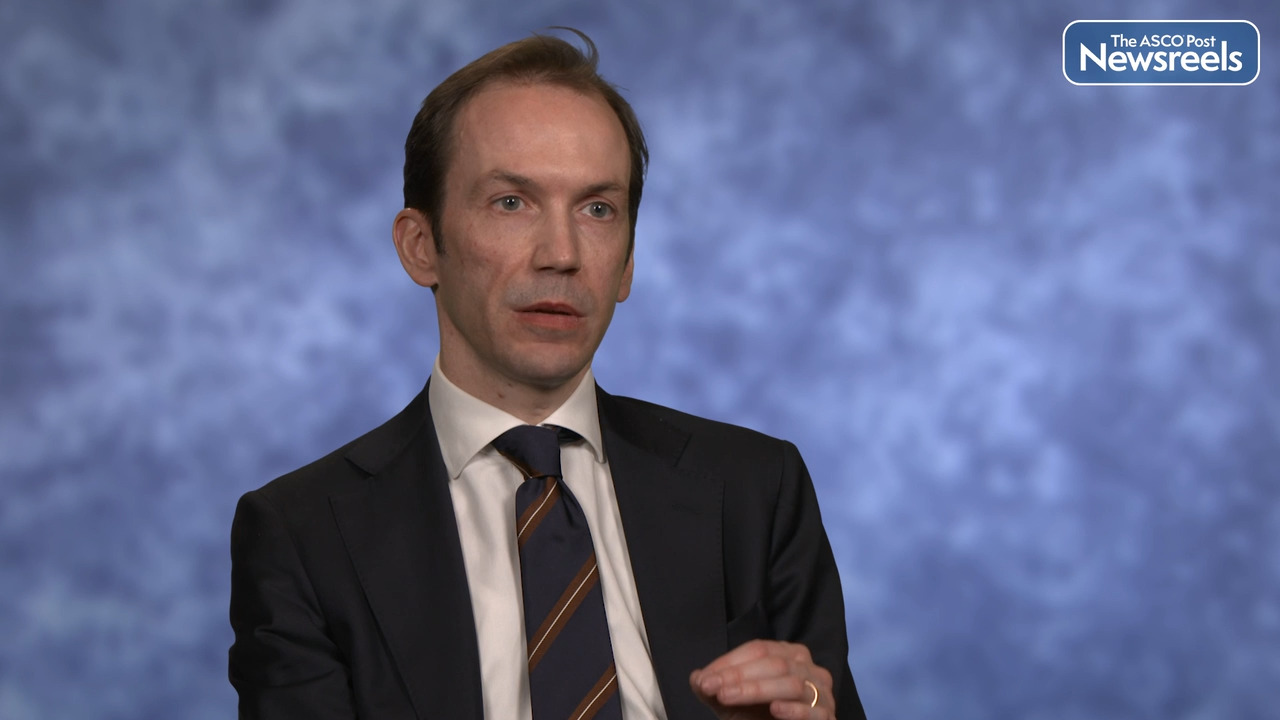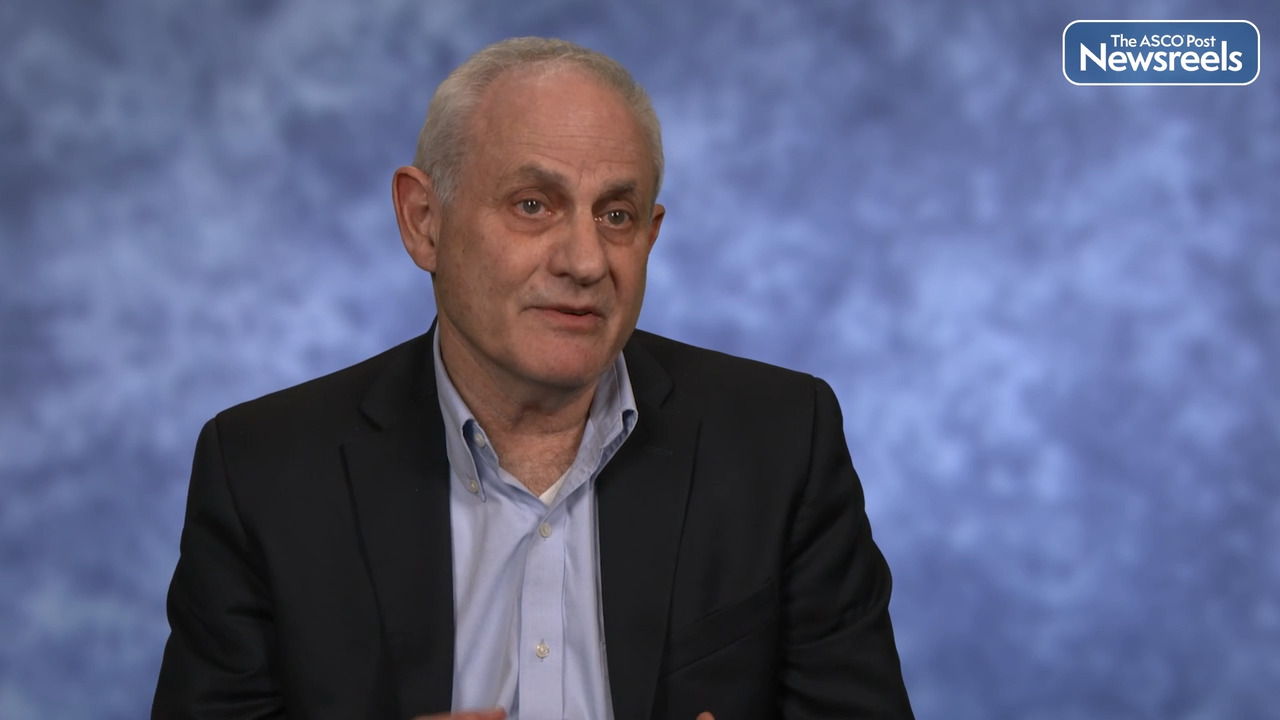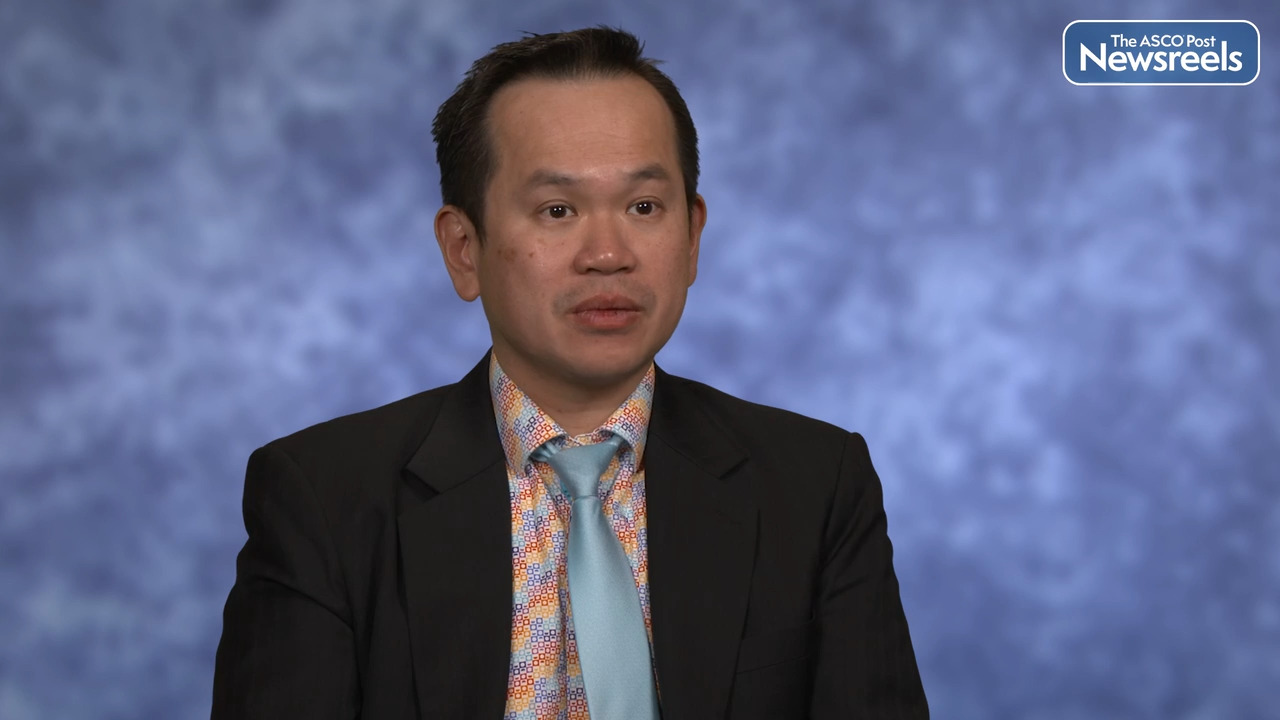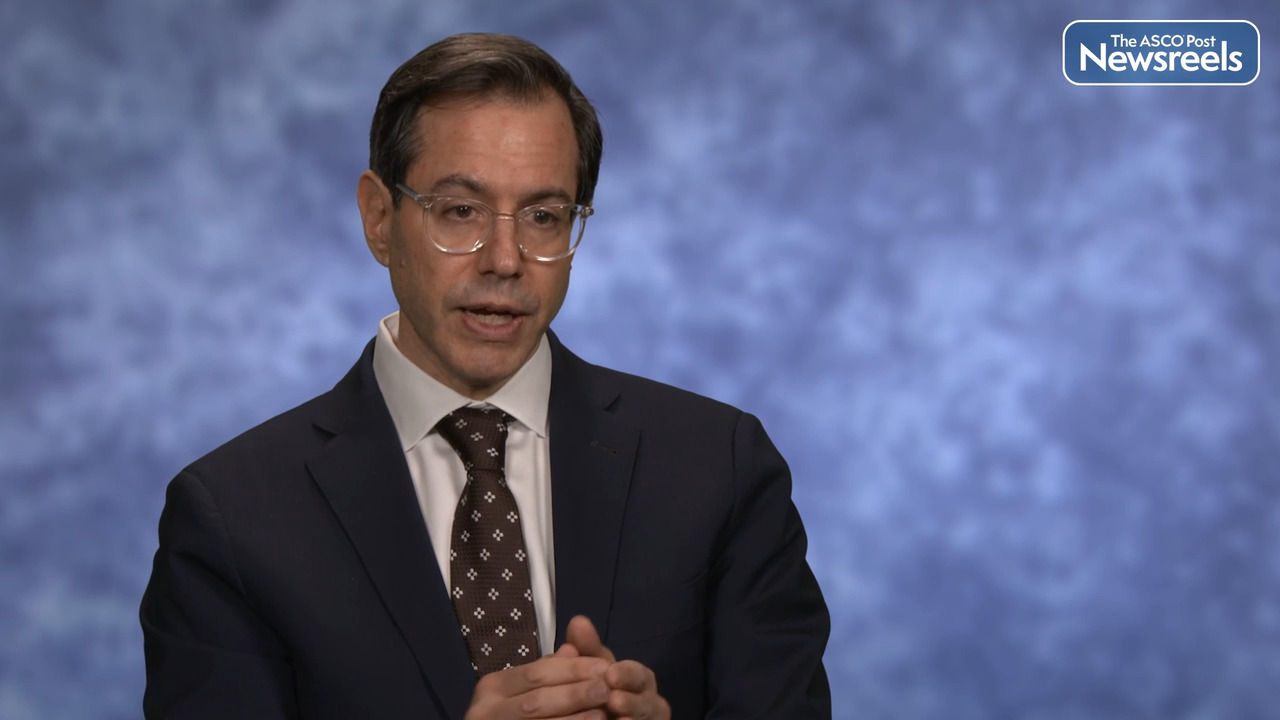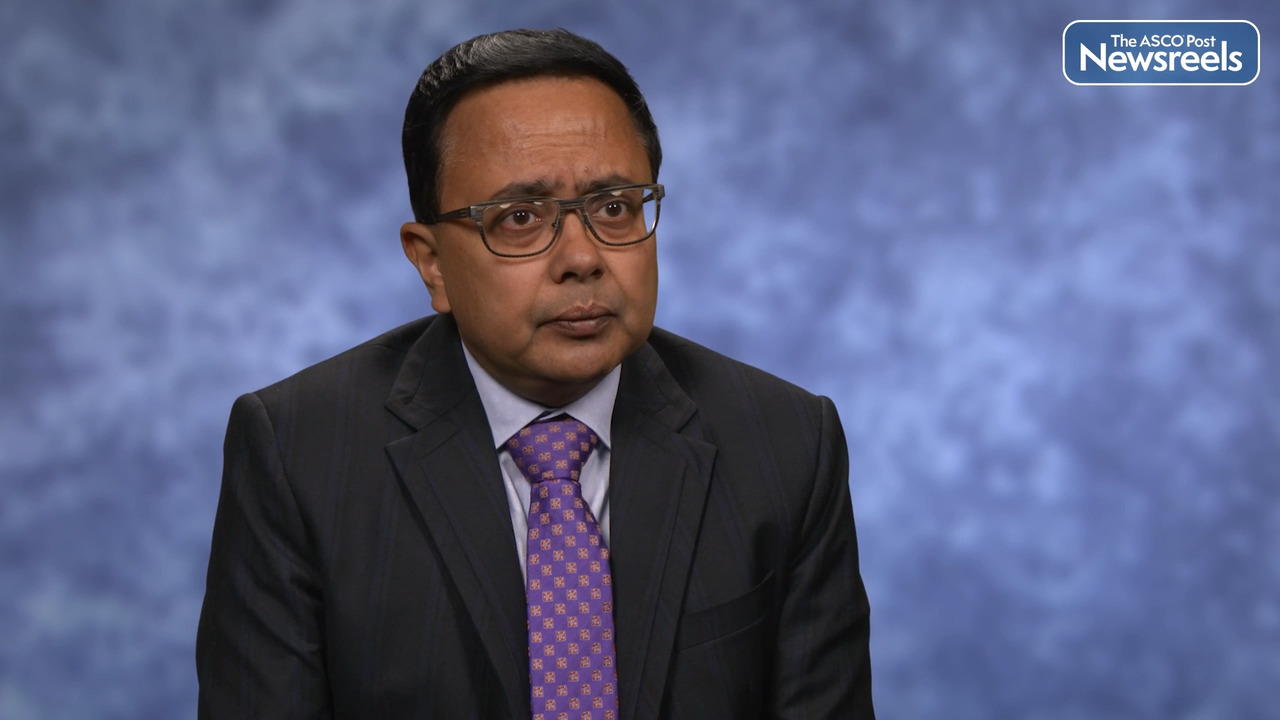Toni K. Choueiri, MD, on Renal Cell Carcinoma: Potential Predictive Biomarkers of Treatment Efficacy
2023 ASCO Genitourinary Cancers Symposium
Toni K. Choueiri, MD, of Dana-Farber Cancer Institute, discusses a biomarker analysis from the phase III CheckMate 9ER trial of nivolumab plus cabozantinib vs sunitinib for the treatment of patients with advanced renal cell carcinoma. The ongoing study aims to identify a predictive biomarker that may potentially guide therapeutic choices. (Abstract 608).
Transcript
Disclaimer: This video transcript has not been proofread or edited and may contain errors.
What we presented was the biomarker analysis. So, we had data on RNA-Seq, on immunohistochemistry. We asked a lot of questions during this study. The first question we asked is if there are any gene signatures that were previously described in RCC with VEGF inhibitor, but PD-L1 inhibitor with nivolumab that's a PD-L1 inhibitor. So are they different? And actually we couldn't validate any of the signature that were described with PD-L1 inhibitors plus VEGF inhibitors such as the bevacizumab atezolizumab from emotion 151 or from JAVELIN Renal 101 with axitinib and avelumab. But of course this is a PD-L1 inhibitor, so we weren't able to validate that. But we actually found some hallmark gene sets and some individual genes associated with progression-free survival. And that started us to characterize the tumor microenvironment of the responders to PD-L1 plus VEGF inhibitor better.
We also looked at immunohistochemistry, specifically at CDAT cell, at PD-L1 and at c-MET looking at different cutoff and definitions. And also we couldn't find anything that is predictive for the combination versus single agent sunitinib. The only thing that came up, and this was not surprising, is that some prognostic markers, so for example, in sunitinib treated patient PD-L1 positivity is associated with worse outcome. We knew that. This is not new at all and nivolumab, cabozantinib resulted in better PFS regardless. Same thing with MET, the membrane CT, c-Met expression was not associated with much, but the cytoplasmic c-Met was associated with worse prognosis. So this was not predictive. Overall in term of next step and what that means that we continue to try to identify predictive biomarkers, probably the next step using a composite model for nivolumab, cabozantinib efficacy. But it seems all these biomarker we identify, they may be specific to a drug or a combination rather than class of agents such as VEGF and PD-1, PD-L1 inhibitor.
The ASCO Post Staff
Andrea Necchi, MD, of Italy’s Vita-Salute San Raffaele University and the IRCCS San Raffaele Hospital and Scientific Institute, discusses new data from the KEYNOTE-057 trial on a novel systemic therapy for papillary high-risk non–muscle-invasive bladder cancer. The findings suggest that patients whose disease does not respond to bacillus Calmette-Guérin or who declined or were ineligible for a radical cystectomy may benefit from pembrolizumab monotherapy. (Abstract LBA442).
The ASCO Post Staff
Michael B. Atkins, MD, of Georgetown Lombardi Comprehensive Cancer Center, discusses treatment-free survival outcomes from the HCRN GU16-260-Cohort A study of patients with previously untreated advanced clear cell renal cell carcinoma who received nivolumab and salvage nivolumab plus ipilimumab. The regimen appears to result in substantial treatment-free survival with few treatment-related adverse events. (Abstract 604).
The ASCO Post Staff
Paul L. Nguyen, MD, of Dana-Farber Cancer Institute and Harvard Medical School, discusses results from the FORMULA-509 study, which compared postoperative salvage radiotherapy and 6 months of GnRH agonist with or without abiraterone acetate/prednisone (AAP) and apalutamide, after radical prostatectomy. The study suggested that adding AAP and apalutamide to salvage radiotherapy, plus 6 months of androgen-deprivation therapy, may improve outcomes, particularly in the subgroup of patients with a prostate-specific antigen level higher than 0.5 ng/mL. (Abstract 303).
The ASCO Post Staff
Matt D. Galsky, MD, of the Icahn School of Medicine at Mount Sinai and Tisch Cancer Institute, discusses results from CheckMate 274, which investigated nivolumab compared with placebo in patients with bladder or upper urinary tract cancer, following radical surgery to remove invasive disease. (Abstract LBA443).
The ASCO Post Staff
Neeraj Agarwal, MD, of the Huntsman Cancer Institute, University of Utah, discusses phase III results from the TALAPRO-2 study, which suggested an improvement in radiographic progression-free survival with the combination of talazoparib and enzalutamide over standard-of-care enzalutamide alone as first-line treatment in patients with metastatic castration-resistant prostate cancer. The improvement was seen regardless of homologous recombination repair gene mutations. The combination regimen delayed the time to chemotherapy and worsening in global health status and quality of life. (Abstract LBA17).
